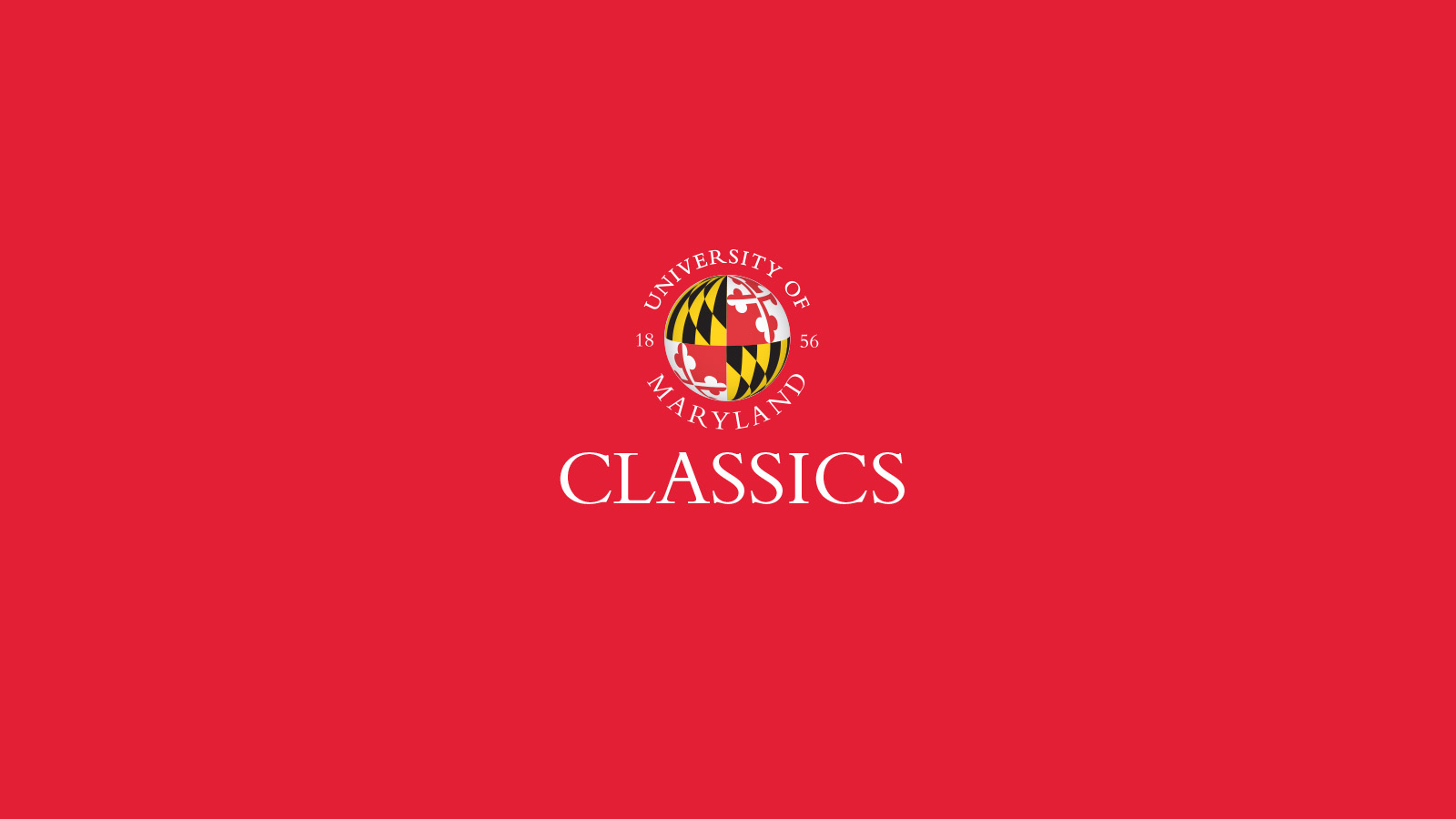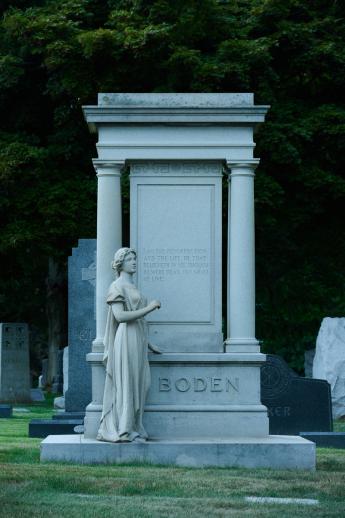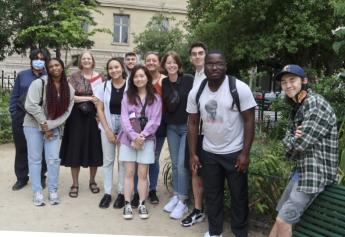Faculty Summer Research News
August 18, 2022

Faculty were busy with research this past summer. See what they were up to!
Prof. Adler continued to work on his edited collection of the correspondence of Irving Babbitt and Paul Elmer More, the two leading lights of the so-called New Humanist movement. The book has received favorable reviews from anonymous referees and will hopefully earn a contract soon. Prof. Adler also began preliminary work on a new anthology: a collection of essays in support of and opposition to the study of ancient Greek and Latin in American education, from the colonial period to the present.
Prof. Barrenechea spent the early summer finishing off a conference paper on how Greek Tragedy was treated as a savage antiquity among the enlightened intellectuals of the Spanish Empire, which he presented at the end of June in London (click here to read more about it). After that, he continued working on the first chapter of his book on the reception of Greek tragedy in Mexico, which focuses on the same issue. He unfortunately had to cancel a research trip in July to Puebla, Mexico, to consult archives related to the theater there, since all the archivists came down with covid! He’s rescheduling the trip to January, when (he hopes) covid won’t be accompanying him in the reading room.
Prof. Bucher has been pursuing a large project on a certain type of American gilded-age funerary architecture with classical roots. He’s worked out typologies for two variants for these monuments and one for the surrogate mourner figures that accompany the second type. Here’s a nice photo he took from a trip to Kensico Cemetery in Valhalla, New York, this summer.
Prof. Bravo spent the first half of the summer in Athens, where he continued his study of the archaeological remains excavated from the Cave of Pan at Marathon by colleagues of the Greek Ephorate of Paleoanthropology and Speleology. His focus is on the material from the Archaic Period through Late Antiquity, when the cave was used as a place of worship for Pan and the Nymphs. As a member of the American School of Classical Studies at Athens, he was also able to network with friends and colleagues in the field. He made progress on some smaller projects too, including initial research for a chapter on the hero Pelops of Olympia, which he was invited to write for a planned volume on ancient Greek heroes and local identity.
Prof. Doherty is enjoying a summer of research and writing after stepping down last year as department chair. She is contributing a chapter on Book 6 to the Oxford Critical Guide to Homer’s Iliad and one on Book 5 to the Oxford Critical Guide to Homer’s Odyssey. At the same time, she is editing a volume on Approaches to Teaching the Odyssey for the Modern Language Association. She is looking forward to teaching the epic in Greek this fall. Here she is with the study abroad group she took to Paris this past May.
Prof. Graf started off the summer by writing a conference paper on the overlooked importance of sluggishness in Seneca's tragedy Phoenissae. She presented this paper at the annual meeting of the American Comparative Literature Association in June, and spent the month of July developing it into what will hopefully be an article. She has also been chipping away at revisions on her first monograph, which traces the didactic potential of emotions in Seneca's philosophical, scientific, and literary works. But most importantly, she made a transatlantic move from Birmingham, England to Washington, DC, where she is thrilled to be starting her new position at UMD!
Prof. Parara presented a paper on democracy at Athens this July (click here to read more about it), and also worked on papers for two upcoming international conferences this Fall. Both papers are related to her research on "Classical Bouquet," a rare and unique primary source she brought to light and published in 2018. Dr. Parara is researching the archives of the rare collections at Georgetown University to publish an article related to her paper "Elisavet Contaxaki's 'Classical Bouquet' and Carroll Spence's correspondence: Keys to the Diplomacy of Cretan Revolutions". This paper will be presented at the 13th International Congress of Cretan Studies in Crete, on October 5-9, 2022. Dr. Parara is also working on one more paper entitled "Liberalism versus Democracy in Koraes' Prolegomena on Lycurgus' "Kata Leokratous" and Contaxaki's 'Classical Bouquet'" for the 27th Biennial Modern Greek Studies Association Symposium 2023 at York University, Toronto, Canada on October 13-16, 2022. In this paper, Dr. Parara will discuss the reception of Athenian democracy by 19th-century Greek elites.
Prof. Wasdin started the summer with a trip to Rome, where she presented a paper on the Magna Mater at a conference on Women and Ritual Acts (click here to read more about it). She also celebrated getting tenure! In between trips to family and a mercifully mild case of covid, she spent some time in her natural habitat (aka the Library of Congress) finishing a long-overdue encyclopedia article on Betrothal and revising the introduction to her book on the reception of Catullus.



